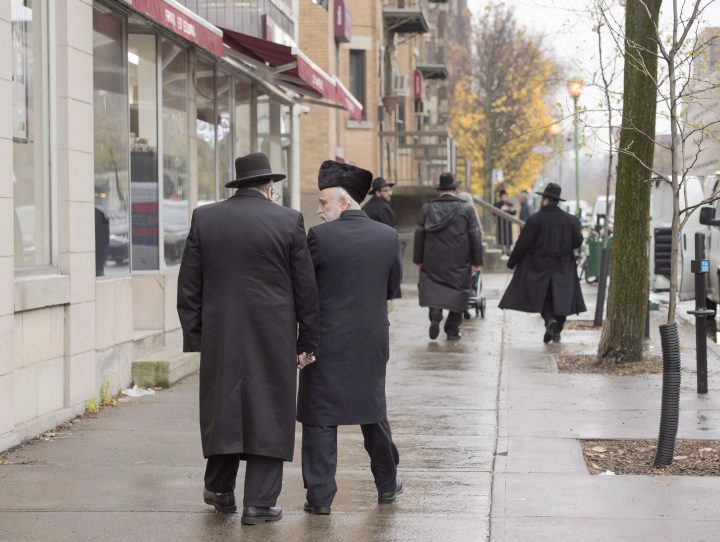OTTAWA — The size of the country’s Jewish community appears, on the surface, to have seen its most dramatic decline in decades, with newly released census data on the country’s ethnic makeup suggesting a 56 per cent drop in numbers over a five-year period.

The decline to 143,665 in 2016 from about 329,500 in 2011 – a drop of almost 186,000 people – is the largest such drop for any ethnic group recorded in the census data released last week.
It also far exceeds smaller declines noticed in previous census cycles that have been chalked up to changing demographics seen in the wider Canadian population, namely an aging cohort with a low birth rate.
READ MORE: More than one fifth of Canadians are foreign-born, proportion from Asia growing
The noticeable drop raises questions about whether the finding is an accurate portrait of the Jewish population.
“Obviously, the Jewish community didn’t shrink by more than half in the past five years,” said Shimon Fogel, CEO of the Centre for Israel and Jewish Affairs.
Community leaders say they plan to use a small window of opportunity to lobby Statistics Canada for changes to the 2021 long-form questionnaire, lest the results get replicated in five years time, further skewing the size of the community. If their efforts are unsuccessful, they would have to find a way to conduct their own community count.
“We are concerned and the issues are definitely on our radar,” said Linda Kislowicz, president and CEO of the Jewish Federations of Canada.
WATCH: Everything you need to know about languages, households and marital status from the 2016 census

“We have every intention of working both with the civil servants and the politicians involved in this to see if we can lobby them to change the way they’re doing this.”
But the figures also reflect an age-old question for the community about how to define Jewish. There are Jews who see the identity as religious and ethnic; others only see it as a cultural affiliation.

Get daily National news
Similar questions may face groups that have a cultural and religious identities, said Jack Jedwab, president of the Association for Canadian Studies, but not in the same way as it does in the case of the Jewish community.
Jewish groups use census data on language, religion – which is asked once every 10 years – country of origin and ethnicity to create as accurate a picture as possible about Jews in Canada. A six-point definition was established to counteract a long-term decline in the number of Jews who identify themselves on the census as ethnically Jewish, a category that on its own may miss swaths of Canada’s Jews.
WATCH: Where we stand on income and poverty

“An accurate portrait of Canadian Jewry requires a survey designed to address the nuances of Jewish respondents, for whom Jewish identity is a blend of religion, ethnicity and peoplehood,” Fogel said.
“On the census question of ethnicity, this seems to be where the 2016 survey falls short.”
The survey asked respondents for ethnic origins and listed almost two dozen examples based on the most frequent responses from the previous census. The examples then may act as prompts for Jews who may not identify as such on the questionnaire, Kislowicz said.
However, Jewish came off the list of examples for 2016 after falling out of the top 20 responses in 2011.
READ MORE: Canada’s Indigenous population growing 4 times faster than rest of country
Now that the Jewish ethnicity figures have fallen further, it is unlikely to appear on the example list on the 2021 survey that will also ask about religion and further reduce the size of the recorded population, which is why lobbying is underway for a change in wording to questionnaire.
“Those people who are ethnically Jewish, but religiously not, will probably not appear in the census in 2021 unless there is some rectification and the Jewish community can persuade Statcan to restore Jewish as part of the examples,” Jedwab said.
The findings then have potential implications for other ethnic groups that use the census figures to lobby governments on policy and help community groups make decisions about where to invest resources and programs.
- What is B.C.’s Mental Health Act and why is it relevant to Tumbler Ridge shooting?
- YouTube, Roblox say they deleted accounts tied to Tumbler Ridge shooter
- Elections Canada says Freeland broke rule by answering byelection questions
- Air Canada says it saw strong profits despite drop in U.S. travel demand







Comments
Want to discuss? Please read our Commenting Policy first.